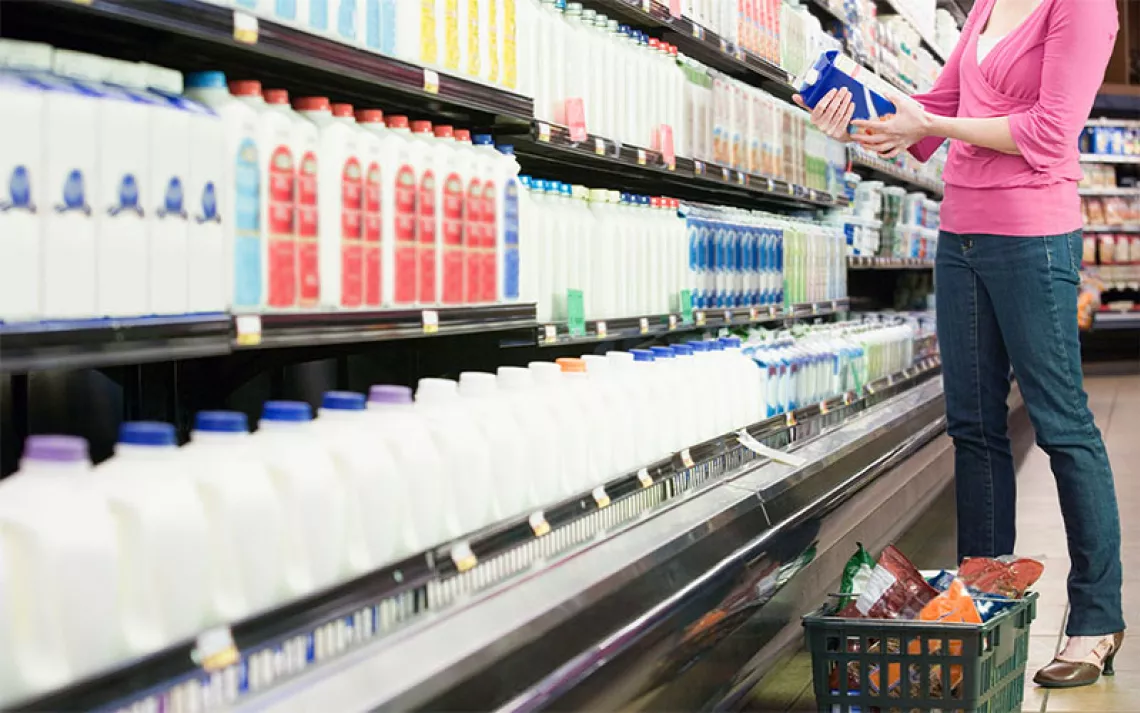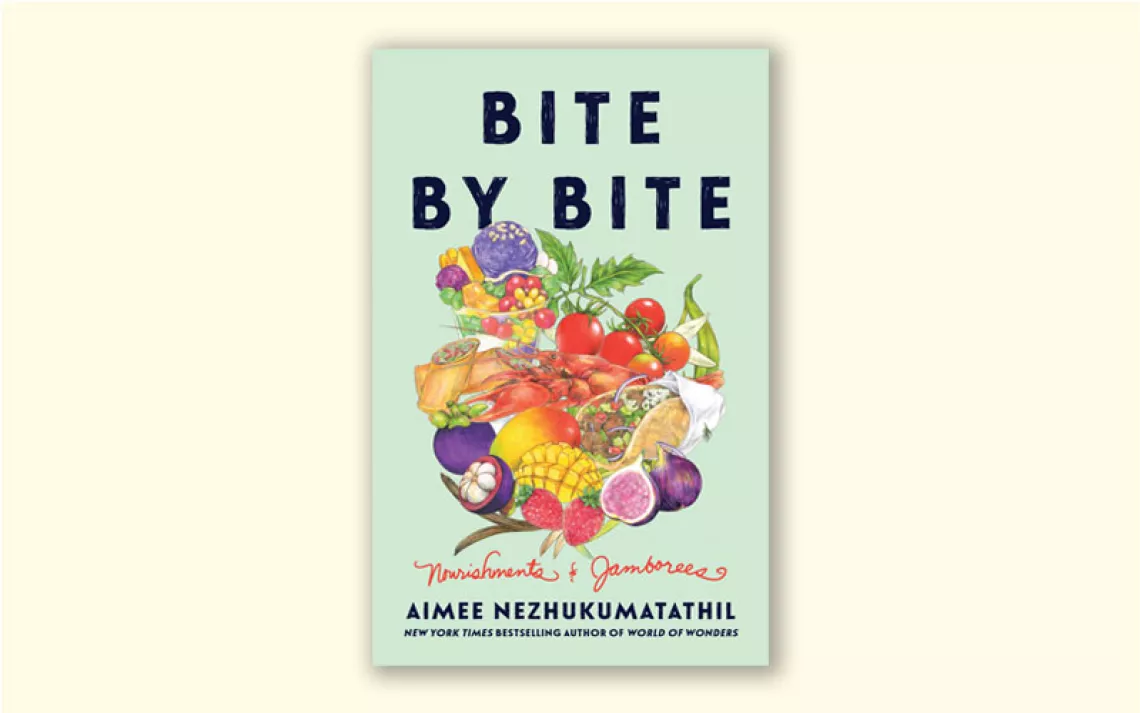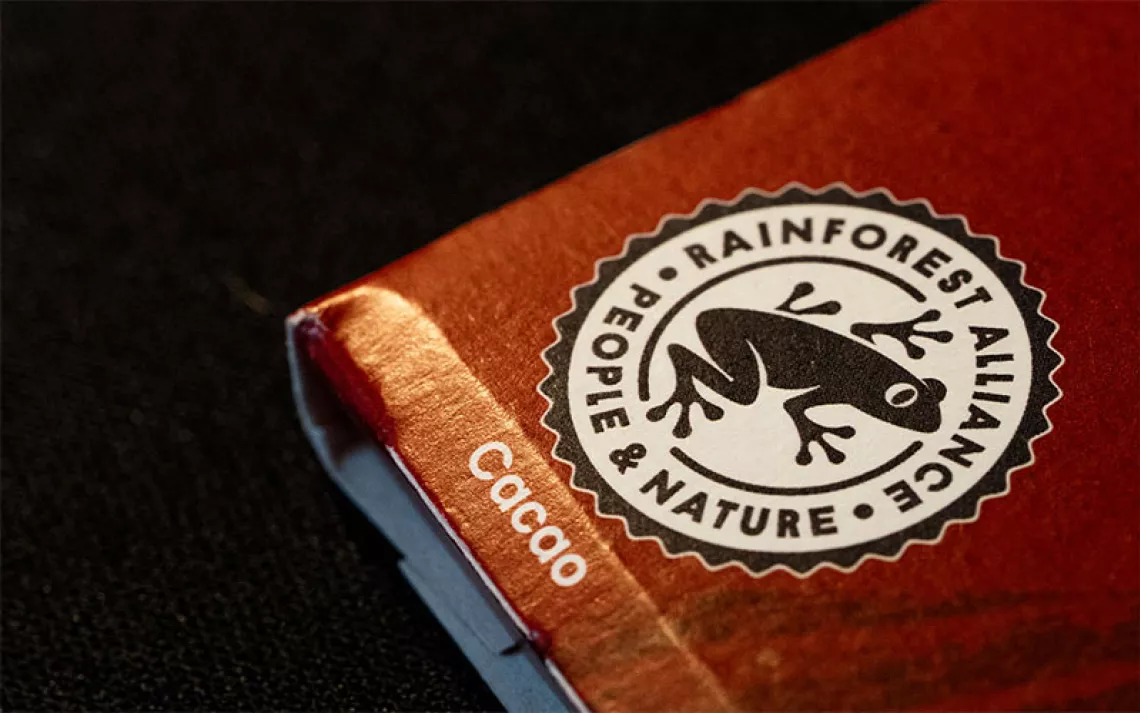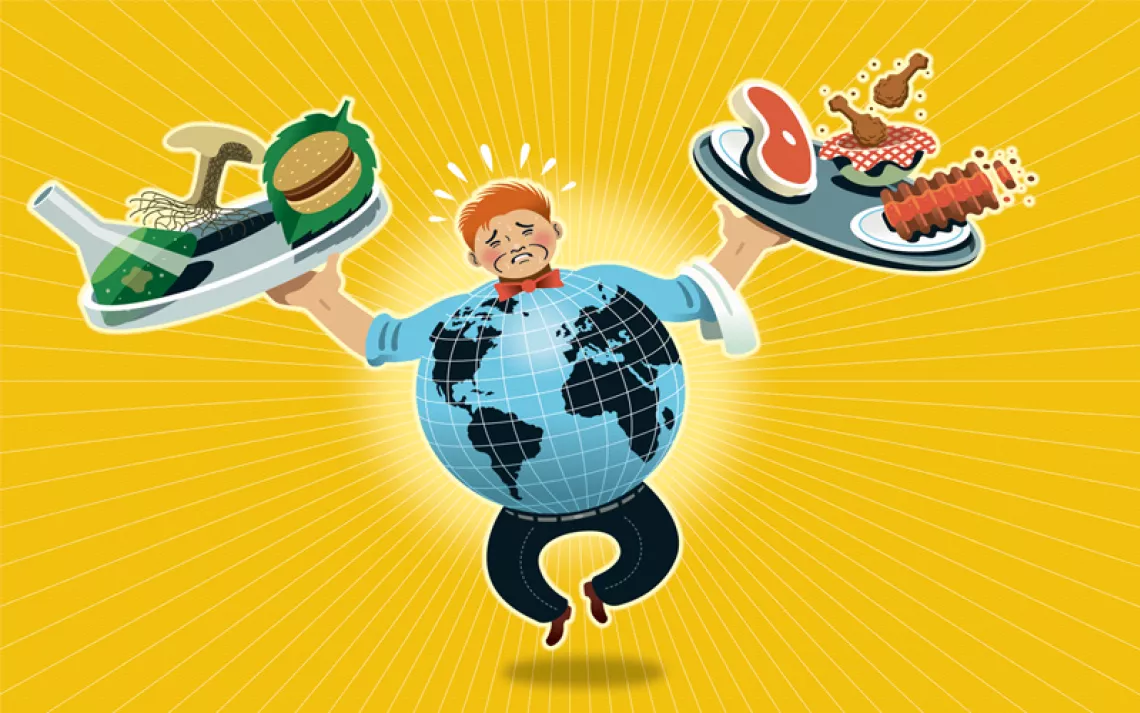Can We Trust the Label "Organic"?
Mr. Green checks the facts

Photo by LagunaticPhoto/iStock
Hey Mr. Green,
How can anything be organic with the upload of toxic material from Earth to the atmosphere and back?
—Eva in Locust Grove, Oklahoma
It’s true that some toxic stuff does manage to sneak back into fields where organic food is grown, but studies do show that organic foods have a whole lot fewer chemicals in or on them than other food. As early as 2000, the Food and Agricultural Organization noted lower levels of pesticides in organically produced vegetables and lower levels of veterinary-drug residues in animal products. More recent literature confirms this, with one study finding that organic food consistently had one-third as much pesticide residue as conventionally farmed products, while organically grown food also contained somewhat higher levels of micronutrients.
There are also other significant safety advantages to organic farming, because it reduces soil loss while it increases soil organic matter content. The biochemical and ecological characteristics of the soil are improved, while organically managed soils also have a higher water-holding capacity than conventionally managed soils.
These are a few of the reasons why it makes sense to support organic agriculture, despite the fallout from conventional farming.
 The Magazine of The Sierra Club
The Magazine of The Sierra Club



